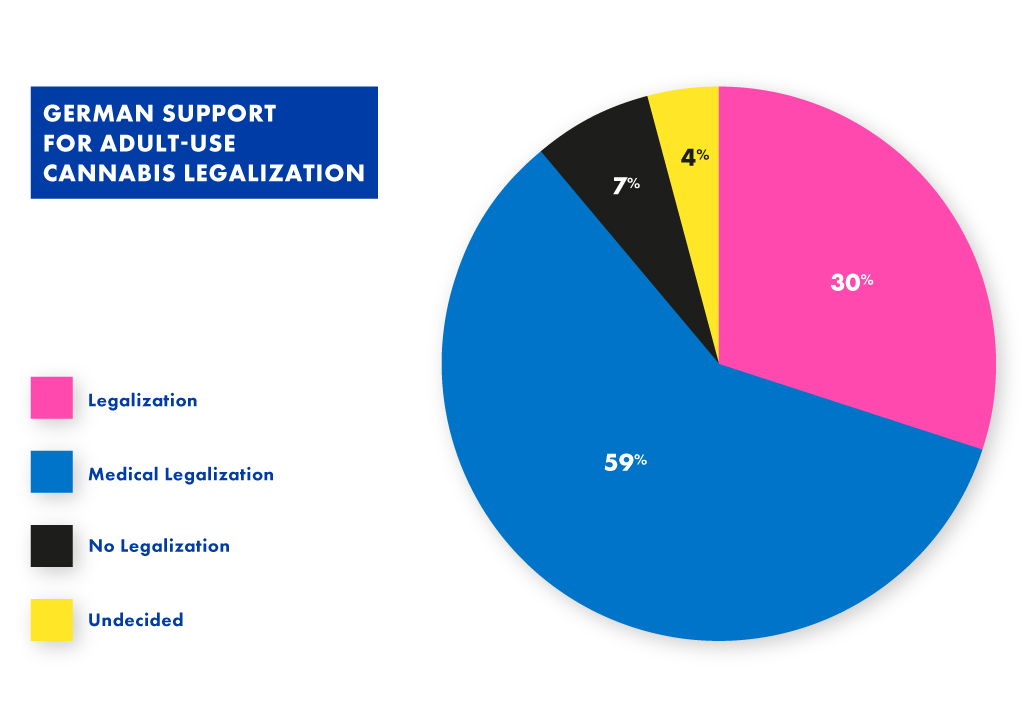Issue #61
Guten Morgen!
Coalition negotiations between the SPD, Greens, and FDP officially began this week, so you can be sure that we’ll be hitting you with updates in the coming weeks. In the meantime, enjoy the newest Krautshell edition to kick off your wonderful weekend!


Anna Christian
FIRST, SOME SOLID INTEL:
New York Times brings down Germany’s and Europe’s most powerful newspaper editor
Former German Chancellor Gerhard Schröder once said: “To govern, all I need is the Bild and the boob tube.” And until today, the infamous Bild is one of the most powerful newspapers in Germany, ranking number one in German and European newspaper sales. However, as of last Monday, the newspaper known for its lurid headlines, political spin and simple language has a new boss:
On Sunday night (our time), the New York Times released a rather long article that shone an unforgiving light on the workplace culture at Bild and especially the then editor in chief Julian Reichelt. Among other things, the article accuses him of abusing his power by promoting a junior employee while Reichelt was having an affair with her. Reichelt who steered Bild firmly to the right and is famous for his soft spot for populist headlines was already the subject of criticism in the spring when compliance investigations revealed that he was having a relationship with at least one female employee. This time, however, the parent company did not withstand the (international) pressure. One day after the New York Times article, word spread that Bild parent company Axel Springer had sacked the editor of its crown jewel Bild.
We wonder, however, whether the former war journalist would have been let go if the parent publishing house was not currently on a transatlantic shopping spree. Axel Springer has spared no expense in recent years to expand its digital presence, especially in the United States. In 2015, Axel Springer bought Insider (formerly Business Insider) for the considerable sum of 442 million euros and, exactly one day after the let go of Reichelt, Axel Springer announced that it successfully completed the acquisition of Politico for roughly 1 billion euros. It can’t be ruled out that by relieving Reichelt of his duties, the company wanted to protect itself from a deterioration in relations with investors.
“Danke schön!”: European leaders wave goodbye to Angela Merkel
On Thursday, EU leaders paused their meeting for a farewell photograph with Angela Merkel at what is her 107th and likely to be last EU summit. During those summits, Merkel has negotiated with eight Italian premiers, five British prime ministers and four French Presidents. She has managed some of the biggest twists in European history, including the refugee crisis, the corona pandemic and the euro crisis. During Merkel’s farewell, a few goodbyes stood out. We have asked around and collected the most beautiful but also the most bizarre farewell greetings and gestures and are happy to present them to you here.
European Council chief Charles Michel paid tribute to Merkel with great words, calling her a “monument”. An EU summit without Merkel would be “like Rome without the Vatican or Paris without the Eiffel Tower”, Michel said and standing ovations followed. But that was not enough: In addition to warm words, Charles Michel had also brought the Chancellor a miniature sculpture of the Europa Building which houses the Council of the EU and the European Council.

Source: Twitter
Luxembourg Prime Minister Xavier Bettel called Merkel a “kind of a compromise machine.” “Very often, when we simply were stuck, Angela went ‘chuck, chuck, chuck’ and then ‘tack, tack, tack’ – and then we managed to muster ambition despite everything.”, he added. Even former US President Obama had a few warm words to say during the summit. In a heartwarming video shown to the EU leaders, Obama thanked Merkel for her “good humor, wise pragmatism and an unrelenting compass.”
We must admit that several eyes did not remain dry when Obama ended his emotional tribute with a “Danke schön”. However, despite all the gifts, we still don’t want to be in Angela Merkel’s shoes because she has some tricky problems to solve, such as the soaring energy prices and the Polish row over EU law. Meanwhile, it is also not entirely certain that the EU summit, which runs until Friday afternoon, will really be Merkel’s last. If the timetable for the traffic light coalition negotiations in Berlin gets out of hand, the CDU politician could return to Brussels for the next meeting in mid-December after all.
Covid numbers on the rise again in Germany (and the rest of Europe)
And once again, the experts were (unfortunately) right: With the fall in full swing, Corona numbers are going up again in Germany. Health authorities reported nearly new 20,000 cases on Thursday, an increase of almost a 100 % compared to the same day last week. Simultaneously, in Romania and Russia, where far too few people have been vaccinated, the intensive care units are full.
Experts see the problem in the still too low vaccination rate in Germany, where only two thirds of the population have received their second jab. Additionally, the next problem is slowly emerging on the horizon: getting the third jab. While Biden had himself demonstratively vaccinated with a third dose in front of tv cameras, the German government seems to be sleeping through the issue. While countries like Lithuania already (and the US soon) offer boosters for most of the population, the “Standing Commission on Vaccination” in Germany recommended booster shots at the beginning of October only for people over 70 and other particularly vulnerable groups. Right now, only a quarter of those eligible for a third dose have received it.
Finally, a little tip from us for your trip to Europe during Corona times: In many countries in Europe, a digital vaccination certificate is required in everyday life. For example, our Brussels team must show the European vaccination certificate in QR format every time they visit a restaurant or bar. As of now, a separate digital certificate just for Americans does not exist. Therefore, we recommend that you inquire before entering the country whether an American Covid passport will be accepted for your planned activities. We hope to see you soon in Europe!
THE HOUSE’S VIEW
TO MINISTRY OR NOT TO MINISTRY? THAT IS THE QUESTION.
Germany has a big problem: digitization. While the slow progress of digitization has been lamented for years, the acute need for speedy internet and digital solutions during the COVID pandemic led to the conversation being placed back into the center of political debate. One buzzword that has popped up over the past few years, is the idea of a “digital ministry,” or in official terms, a “Federal Ministry for Digitization.” At this point we should probably add that Germany already has a Minister of State for Digitization, Dorothee Bär, housed at the Federal Chancellery. Her role is predominantly advisory though, as opposed to the proposed ministry, which would have concrete decision-making power. Let’s look at some of the arguments for and against the creation of this body.
Digital Ministry? Yes Please.
Removing the Barriers of Federalism: Many believe Germany’s slow progress in the digital arena comes down to federal nature of the country’s political system. For example, states make decisions about their own schools or public administration. This structure makes it incredibly difficult to make sweeping decisions for the whole country, and a centralized body with one main focus could streamline the process. You know, the same way some people say a dictatorship is the most efficient way of governing… along those lines.
Dedicated Resources: Often, in politics or otherwise, whether something gets done or not comes down to a question of resources. Is there manpower? Is there enough funding? Do we have time? Should a Digital Ministry be created, it would have its own budget and dedicated staff that serve one single purpose: driving forward the digitization of German society and the economy. Maybe that would be enough to get things moving.
Digital Ministry? No Thank You.
Connected, not Siloed Thinking: For many, giving this topic its own dedicated ministry would only make Germany’s digitization troubles worse. To elaborate: it would likely lead to other ministries, departments, and agencies believing it is “someone else’s job” to consider the digital dimension of their projects. The digital transformation requires connective, not siloed thinking. In fact, as professors at the Hertie School in Berlin pointed out, countries with the best digital record are the ones who anchor digitization in strong ministries with their hands in many different cookie jars (like ministries for economics or finance).
Bureaucratic Nightmare: Let’s be honest, government bodies are not exactly known for their blazing fast speed, efficiency, or innovative capacity. This fact raises the question: is the government even the right place to advance digitization? If it hasn’t happened yet in 2021, why should it happen now? Many individuals who are against a digital ministry, particularly those from private industry, believe that government funds are better spent on more collaborations with start-ups, research institutions, and large companies rather than building an expensive government body.
The House’s View
We’ll keep it short and sweet: we’re not convinced of the usefulness of a digital ministry. Having a Minister of State in office has brought more attention to the topic, but we can’t say that Germany has radically changed its course on digitization due to the creation of this position and the accompanying German Innovation Council. Also, digitization should be a natural part of any modern government without needing an explicit ministry. Therefore, we don’t really see how a dedicated Ministry would be much more effective. And that’s the house’s view, feel free to ping us if you’d like to discuss this topic more.
Traffic Light Coalition: Coalition talks in Germany began on Thursday and an ambitious timetable was announced. The coalition agreement should be in place by the end of November and election of the new Chancellor is scheduled to take place in the second week of December. That’s a tight schedule!
Fridays for Future: On Friday, more than 10,000 supporters of the Fridays for Future movement marched through the government district in Berlin and blocked various party headquarters. They demand more climate protection from the parties currently in coalition negotiations.
Border Controls once again? In Germany, discussions about the reintroduction of border controls are increasing. In response to sanctions imposed by the European Union, Belarusian ruler Alexander Lukashenko had declared that he would no longer stop migrants heading to the EU, increasing migrant movements at the German-Polish border.
TARIFAUTONOMIE. LEAVE IT ALONE.
Germany has a longstanding history of employee participation*, from strong labor unions to mandatory workers’ councils to employee representation on the board if their company is publicly traded. The “forced” cooperation fostered a common understanding of the challenges companies faced and ensured wages were acceptable for both sides.

This is why, when the minimum wage was introduced in 2015, a politically independent commission was set up, with the task of setting the minimum wages in this spirit – starting with 8,50 €, having been raised to 9.60 € and already envisioning the next raise to 10.45 € in 2022.
Now, things are heading in a different direction. One of the major points in the SPD’s election campaign was the promise to raise the minimum wage to 12 Euro, which the Greens seconded. The FDP was and remains opposed. However, in the ongoing coalition negotiations between SPD, the Greens and the FDP, we heard this raise is on the table.

If a higher minimum wage is a wise decision in the current post pandemic economic environment – well, that question would require its own WOOM-article. But the real problem with the envisioned measure is the violation of the principle of “Tarifautonomie” (English: collective bargaining), the right of employers and employees to settle wages between themselves, based on economic capability and not influenced by political interests.
Germany is a social market economy, combining a welfare state with the fair competition of a free market economy. We can only hope that this interference of policy-makers in what we call “Ordnungspolitik” (the principle that the state only becomes active when the markets are failing) is not a sign of a general renunciation of the economic and regulatory principles that have made Germany thrive in the past.

Alternatively, we can hope that this point won’t enter the coalition treaty. Or that the treaty won’t be signed at all…
*Introduced early in the 20th century, and even anchored in the constitution of 1919

